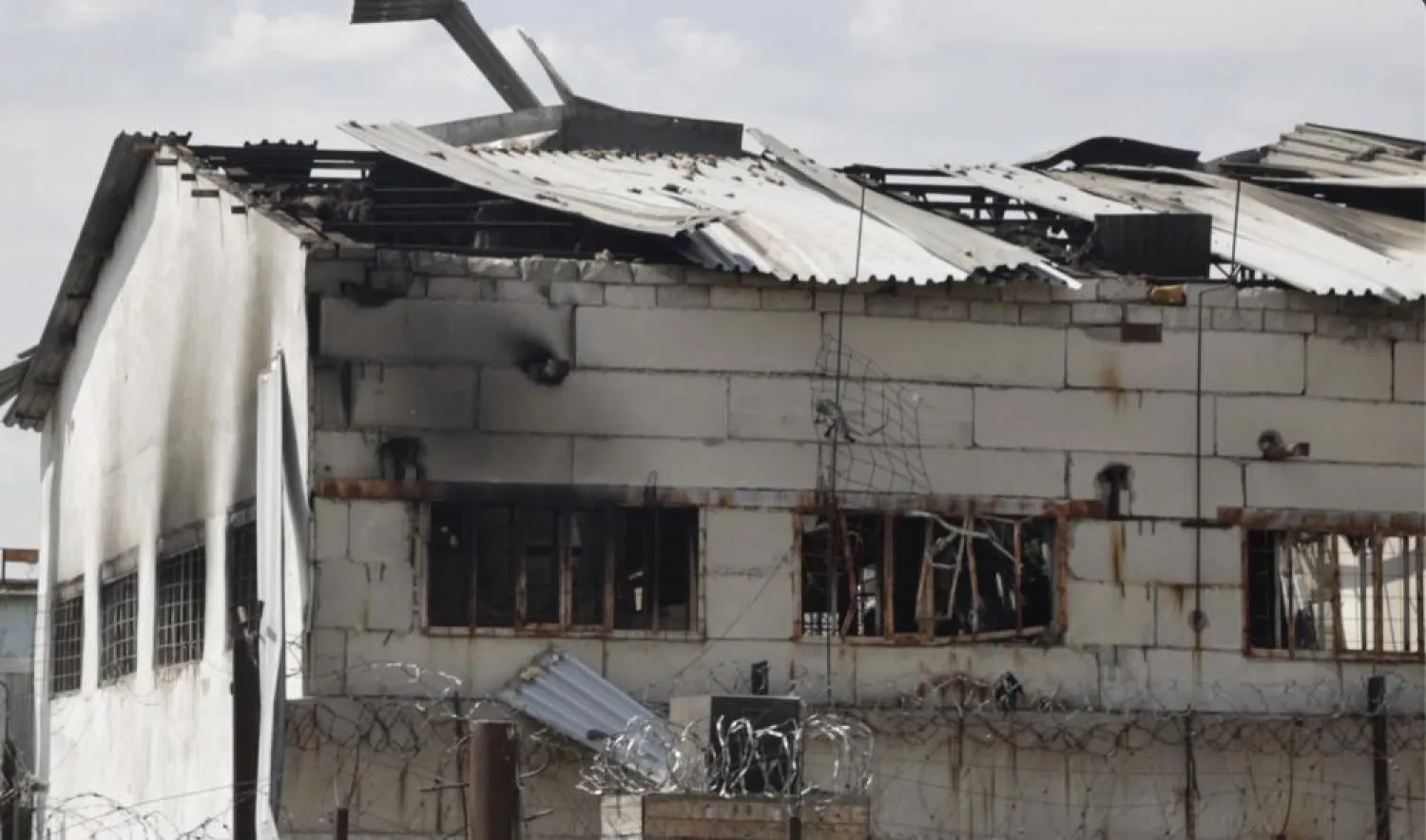Russia launched nighttime attacks on several cities in Ukraine, Ukrainian officials said Saturday as they and officials in Moscow blamed each other for the deaths of dozens of Ukrainian prisoners of war in a separatist-controlled area of the country's east.
Ukrainian President Volodymyr Zelenskyy said the United Nations and the International Committee of the Red Cross have a duty to react after shelling of a prison complex in Donetsk province killed the POWS.
“It was a deliberate Russian war crime, a deliberate mass murder of Ukrainian prisoners of war,” Zelenskyy said in a video address late Friday. “There should be a clear legal recognition of Russia as a state sponsor of terrorism.”
Both sides alleged the attack on the prison was premeditated and intended to silence the Ukrainian prisoners and to destroy evidence, including of possible atrocities, The Associated Press reported.
Russia claimed Ukraine’s military used US-supplied precision rocket launchers to target the prison in Olenivka, a settlement controlled by the Moscow-backed Donetsk People’s Republic.
Separatist authorities and Russian officials said the attack killed 53 Ukrainian POWs and wounded another 75.
The International Committee of the Red Cross, which has organized civilian evacuations in the war and worked to monitor the treatment of POWS held by Russia and Ukraine, said it has requested access to the prison “to determine the health and condition of all the people present on-site at the time of the attack.”
“Our priority right now is making sure that the wounded receive life-saving treatment and that the bodies of those who lost their lives are dealt with in a dignified manner,” the Red Cross said in a statement.
Elsewhere in eastern Ukraine, Russian rockets hit a school building in Kharkiv, the country's second-largest city, overnight, and another attack occurred about an hour later, Mayor Ihor Terekhov said Saturday. There were no immediate reports of injuries.
The bus station in the city of Sloviansk also was hit, according to Mayor Vadim Lyakh. Sloviansk is near the front line of fighting as Russian and separatist forces try to take full control of the Donetsk region, one of two eastern provinces that Russia has recognized as sovereign states.
In southern Ukraine, one person was killed and six injured in shelling that hit a residential area in Mykolaiv, a significant port city, the region's administration said Saturday on Facebook.
Friday's attack on the prison reportedly killed Ukrainian soldiers who were captured in May after the fall of Mariupol, another port city where troops famously held out against a monthslong Russian siege.
Moscow opened a probe into the attack, sending a team to the site from Russia’s Investigative Committee, the country’s main criminal investigation agency. The state RIA Novosti agency reported that fragments of U.S.-supplied precision High Mobility Artillery Rocket System rockets were found at the site.
The Ukrainian military denied making any rocket or artillery strikes in Olenivka, and it accused the Russians of shelling the prison to cover up the alleged torture and execution of Ukrainians there.
The Institute for the Study of War, a think tank based in Washington, said the competing claims and limited information prevented assigning responsibility for the attack but that the “available visual evidence appears to support the Ukrainian claim more than the Russian.”









